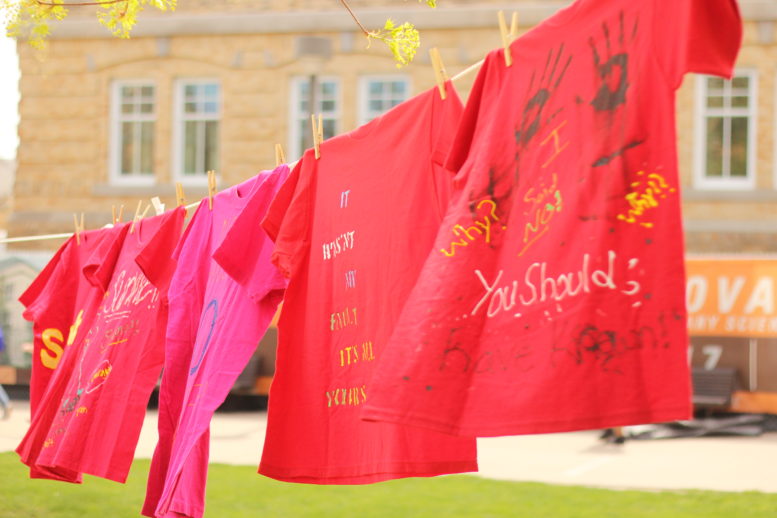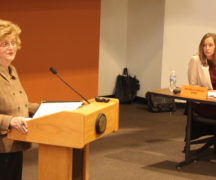By DAVID DUPONT
BG Independent News
Mike Campbell, police chief and director of public safety at Bowling Green State University, knows what people do when they look at the Campus Security and Fire Safety Report.
They scroll to the end where the numbers are. Numbers that show how many thefts and liquor code infractions there are.
He knows what number is going to pop out on the 2018 report. In 2017 there were 20 rapes, all on campus, reported, up from 14 reported in 2015 and eight reported in 2016. There were also seven reported cases of fondling when none had been reported before.
That number comes with a caveat though. The key term is “reported.”
Campbell said: “If we’re talking about those numbers themselves, it’s not completely unexpected.”
The university has expanded its efforts to combat sexual violence, and a lot of that effort has been to increase reporting. “We’re trying to create an environment where people are comfortable reporting. …If we don’t know something transpired it’s difficult to support the survivor, and it gives us the ability to investigate that and hold someone accountable for their actions.”
Jennifer McCary, the Title IX officer for BGSU, has been central in getting out the message that sexual assaults should be reported. She has given presentations to 2,100 students and about 200 faculty, who are required to report if a student tells them of an assault.
She noted that nine of the rapes reported in 2017, actually happened in 2016.
But neither McCary nor Campbell would say that the increase in the number represents just more reporting as opposed to an actual increase.
“That’s always tough to discern,” Campbell said. “Studies out there show approximately 90 percent don’t report their assaults ever,” he said. “Sexual violence is very underreported. Everything we can do that encourages those victimized to report gives us the ability to investigate that crime but also to support that survivor.”
McCary, who is assistant vice resident for student affairs, was hired as a result of the report by a task force on sexual violence that was created in response to protests in spring, 2017, over the way the university handled reports of rape and sexual violence.“We do have new student sexual misconduct and relationship policy,” McCary said. “We will investigate reports that come in.”
A student may report an incident but may not want to pursue it, she said. A student may talk about something to a professor, but will not want to go through the investigative process.
If a student “is willing to participate,” fact-finding is conducted “to try to get as much information as possible,” McCary said. That may progress to disciplinary action.
That process has resulted in students being permanently and temporarily removed from campus.
That disciplinary process is under a shadow as institutions of higher education are awaiting new guidance from the US Department of Education.
The current interim guidance was handed down under the Obama Administration.
Officials are expecting that the new guidance will advise the use of the higher clear and convincing standard for determining guilt.
The university uses a preponderance of evidence standard. By that standard a finding is made based on whether “it’s more likely than not” that there has been a policy violation.
This is in keeping, McCary said, with the student code of conduct.
Under the clear and convincing standard requires that it is “significantly more likely than not to determine whether there a policy violation,” which is closer to the criminal code.
McCary said the policy was set up to allow for some flexibility if the standard is changed.
The increase in reporting is not just the result of university actions. Outside forces are at play as well.
“For the first time in a long time, there’s a national discussion about it,” McCary said. “That’s contributing to the increase in reporting because it’s something people are aware of not just when they’re on campus. It’s dinner discussion now.”





